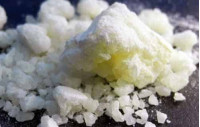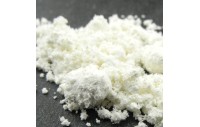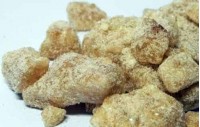Buy Methylone for sale online - USA vendor

- FREE shipping, 6-7 days delivery time
- Inner sending exist.
The main payment option is Bitcoin. As extra ways WU, MG.
We alwayse provide FREE samples of Top products with the main order.
Loyalty program exist, second order will be - 5%OFF
Safely work only with us! We provide - re-shipment guarantees.
Here you'll discover unused lawful items of immaculate quality.
Some time recently purchase if you don't mind make beyond any doubt that the items beneath your curiously are lawful in your country.
We do not offer a pharmaceutical items or beneath control items.
Introduction
In the realm of synthetic compounds that alter human perception and behavior, Methylone has carved its niche as a popular and controversial substance. This article delves into the multifaceted aspects of Methylone, covering its definition, historical context, effects, dosages, legal status, pharmacology, and chemistry. As a member of the cathinone family, Methylone has fascinated and alarmed researchers, policymakers, and individuals seeking altered experiences.
How to get Methylone?
Methylone is often marketed under various street names like "M1," "bk-MDMA," or "Molly." It was initially sold as a legal alternative to MDMA, though its legality has shifted over time. The availability of Methylone has been largely associated with illicit online markets and underground drug scenes. However, due to its often unregulated nature and potential risks, acquiring Methylone poses considerable dangers, including potential legal consequences and health hazards.
What is Methylone?
Methylone, scientifically known as 3,4-methylenedioxy-N-methylcathinone, is a synthetic stimulant with empathogenic and entactogenic properties. It belongs to the substituted cathinone class of drugs, a family of compounds structurally similar to amphetamines. Methylone's chemical structure incorporates a methylenedioxy group, similar to MDMA (ecstasy), contributing to its psychoactive effects.
The History of Methylone
Methylone was first synthesized in the early 20th century, with its chemical structure explored in medicinal chemistry. However, its psychoactive properties gained prominence in the 2000s, when it appeared as a "research chemical" in online marketplaces. Methylone was initially touted as a legal substitute for MDMA, leading to its surge in popularity among individuals seeking recreational experiences. Its history is closely intertwined with the emergence of other designer drugs as regulators attempted to keep pace with evolving chemical formulations.
Effects of Methylone
Methylone's effects are reported to be somewhat similar to those of MDMA, including increased sociability, heightened empathy, and sensory stimulation. Users often describe experiencing emotional openness and a sense of euphoria. However, like many synthetic substances, the effects of Methylone can be unpredictable. They may vary depending on dosage, individual physiology, and the context in which it is used. Additionally, Methylone's influence on neurotransmitters like serotonin, dopamine, and norepinephrine can contribute to both desired and adverse effects.
Dosage of Methylone
Determining a safe and effective dosage of Methylone is challenging due to its unregulated status and variable purity. Reports suggest that a typical oral dose of Methylone ranges from 100 to 200 milligrams, with effects lasting around three to four hours. Users often "re-dose" to prolong the experience, potentially increasing the risk of adverse effects and negative health outcomes. It is crucial to emphasize that responsible use and cautious dosage practices are paramount when dealing with any psychoactive substance, especially one as insufficiently studied as Methylone.
Legal Status of Methylone
The legal status of Methylone has been subject to ongoing changes and jurisdiction-specific regulations. Initially, Methylone enjoyed a relatively gray legal area in many countries, allowing its proliferation as a legal alternative to controlled substances. However, as its recreational use and associated risks became more evident, many governments began enacting stricter regulations and classifying Methylone as a controlled substance. The legality of Methylone varies widely, making it essential for individuals to stay informed about their local laws and regulations.
Pharmacology of Methylone
Methylone's psychoactive effects stem from its interactions with neurotransmitter systems in the brain. Like MDMA, it primarily affects serotonin transporters, increasing serotonin release and reuptake inhibition. This mechanism is believed to underlie the substance's mood-enhancing and empathogenic effects. Furthermore, Methylone influences dopamine and norepinephrine levels, contributing to its stimulating properties. However, the full extent of its pharmacological actions and potential long-term effects remain subjects of ongoing research.
Chemistry of Methylone
Chemically, Methylone is classified as a substituted cathinone, sharing structural similarities with other compounds like methcathinone and ephedrine. Its chemical formula, C11H13NO3, reflects its molecular composition, which includes a methylenedioxy group connected to a central nitrogen atom. This arrangement is responsible for Methylone's psychoactive effects, as it influences neurotransmitter activity in the brain. Understanding the compound's chemistry is crucial for researchers and policymakers seeking to comprehend its potential benefits and risks.
Final point
Methylone's journey from a synthesized compound in the lab to a widely discussed psychoactive substance exemplifies the complex interplay between science, legislation, and human behavior. As an evolving field, research on Methylone continues to shed light on its effects, risks, and potential therapeutic applications. While it may offer insights into altered states of consciousness, it is unregulated nature and variable effects emphasize the importance of informed decision-making, responsible usage, and ongoing scientific exploration. As society grapples with the challenges posed by synthetic stimulants like Methylone, a balanced approach that combines scientific inquiry, public education, and regulatory measures is essential to navigating this intricate landscape.
Frequently Asked Questions
Is Methylone legal?
Legal status varies by country and region. It may be classified as a controlled substance in some places. Check your local laws to determine its legal status.
How is Methylone used?
Methylone is typically ingested orally, but it can also be snorted or injected. It is commonly sold in powder or crystalline form.
What are the effects of Methylone?
The effects of Methylone can include increased energy, enhanced mood, empathy, and sensory perception. However, it can also have negative effects such as anxiety, agitation, and increased heart rate.
Is Methylone safe?
The safety of Methylone is a subject of concern. It has been associated with adverse reactions and may pose risks to physical and mental health. It is important to use it cautiously, if at all.
What are the risks of Methylone use?
Risks of Methylone use include potential for addiction, adverse reactions, cardiovascular problems, and mental health issues. It is advised to use it responsibly and be aware of potential dangers.
Is Methylone the same as MDMA (Ecstasy)?
No, Methylone and MDMA are different substances, although they share some similar effects. Methylone is often considered less predictable and potentially riskier than MDMA.
1kg $1690
1kg $1590
1kg $1690
1kg $1590
1kg $1590
out of stock
100g $390
100g $510
1kg $1590
1kg $1590
1kg $1590
1kg $1590








